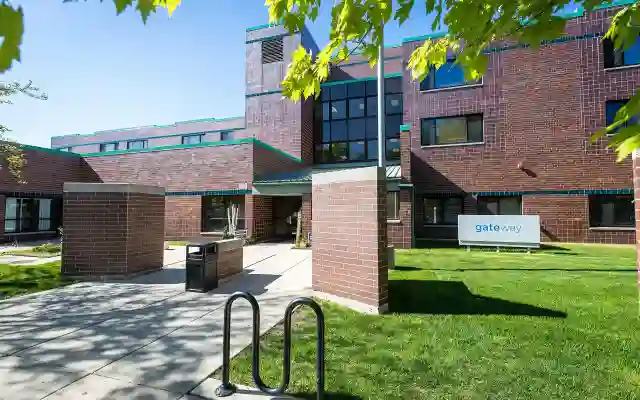Top of the World Ranch
Top of the World Ranch is a holistic residential addiction treatment center located on a 315-acre wooded campus in Milan, Illinois, offering private-room living and a nature-immersed healing environment. The facility combines evidence-based therapies with experiential and spiritual supports to help clients address addiction and co-occurring disorders. The treatment philosophy emphasizes healing of mind, body…
Lincoln Recovery
Lincoln Recovery is a residential addiction treatment center located in rural Raymond, Illinois. The facility offers medically monitored detoxification and private-room inpatient care in a tranquil setting, tailored to individual recovery needs. The center emphasizes personalized treatment plans, blending individual and group therapies with flexible support options (including 12-Step and non-12-Step pathways) in a peaceful,…
Positive Sobriety Institute
Positive Sobriety Institute in Chicago provides highly specialized addiction treatment for physicians, executives, and other professionals. The center integrates evidence-based therapies with comprehensive monitoring and aftercare to help clients return to productive, balanced lives. Located in downtown Chicago, the institute offers discreet, structured programs designed around accountability and recovery. Multidisciplinary teams provide therapy for co-occurring…
Why Trust ExecutiveRehabs
Since 2003, our expert team has built comprehensive resources on executive rehab centers that you can trust to find the right treatment for you.
Transparency and accuracy matter, and we believe you deserve nothing short of the best possible experience when reaching out for support.
FAQs on Executive Rehab
Executive-Level Treatment in Illinois
Leaders in Chicago’s finance, legal, healthcare, logistics, and tech ecosystems often delay seeking help because stepping away can feel career-threatening.
Effective “executive rehab” in Illinois solves for two things at once: strong, evidence-based substance use disorder care and a treatment environment that preserves privacy while enabling necessary work continuity.
What Defines an Effective Illinois Executive Rehab?
Executive programs go beyond amenities.
Hallmarks include private or semi-private accommodations, limited census, one-to-one therapy density, secure connectivity, private meeting space, and flexible scheduling that accommodates board obligations or investor updates.
Programs also integrate co-occurring mental-health care, sleep and stress interventions, and leadership-specific relapse-risk planning.
For licensed or safety-sensitive roles, mature programs add fitness-for-duty evaluation, documentation for employers or monitoring boards, and structured return-to-practice plans.
How These Features Apply in Illinois
- Discretion and access: Facilities in or near Chicago’s suburbs allow low-profile admissions and family proximity, with options to commute discreetly if clinically appropriate.
- Work continuity: Secure internet access, private rooms or offices, and time-boxed windows for essential calls or virtual meetings balance treatment intensity with minimal business disruption.
- Bespoke clinical approach: Higher staff-to-patient ratios, executive coaching, and integrated psychiatry address burnout, anxiety, depression, trauma exposure, and sleep issues common in high-stakes roles.
- Structured documentation: For professionals under licensing boards or employer oversight, programs coordinate the assessments, letters, and monitoring participation needed to return safely to work.
The Landscape of Executive Treatment in Illinois: Capacity and Forms of Care Available
Illinois maintains a robust treatment infrastructure across outpatient, residential, detox, and hospital levels of care. State survey data indicate hundreds of programs statewide with diverse licensure and accreditation footprints.
Many offer evidence-based services and medications for addiction treatment, but only a subset operate explicit “executive” or “professional” tracks.
The practical takeaway for executives is to verify three items early: (1) true executive-track availability, (2) capacity for secure work access and private spaces, and (3) experience with licensing, employer coordination, and confidential documentation.
Confidentiality and Legal Considerations in Illinois
Privacy is a central reason executives seek specialized programs.
In addition to federal HIPAA protections, Illinois’ Mental Health and Developmental Disabilities Confidentiality Act strictly governs disclosure of mental-health and related treatment records, including what constitutes valid consent, the scope of information released, and limits on redisclosure.
Effective programs operationalize these requirements in admission workflows, consent forms, and staff training, and they brief clients on how information flows to employers, EAPs, or monitoring bodies.
Executives should ask to review consent templates, redisclosure limits, and any board/fitness-for-duty reporting pathways before admission.
Insurance, Cost, and Access
Using insurance coverage for executive rehab varies in effectiveness. Some executive programs run in-network outpatient tracks while offering residential care at out-of-network or private-pay rates.
High-deductible and self-insured employer plans require pre-admission verification of benefits, prior authorizations where applicable, and clarity on which services might be cash-pay.
Executives should pin down: network status, expected out-of-pocket costs, length-of-stay expectations, and how the program justifies medical necessity for higher levels of care.
What Common Challenges for Illinois Executives Seeking Rehab Support?
- Limited in-state executive seats: Demand can exceed supply for private-room or fully bespoke tracks, particularly when immediate admission is needed.
- Role pressures: Board meetings, transactions, or public events make multi-week inpatient stays difficult; programs need rigorous scheduling discipline and employer coordination.
- Stigma and visibility: Proximity to one’s business network can feel risky; some leaders prefer treatment outside Illinois to create separation.
- Clinical complexity: Delayed help often means more severe substance use, sleep dysregulation, and co-occurring conditions that require integrated psychiatry and longer aftercare.
Out-of-State Options Executives Commonly Choose
When privacy, capacity, or amenities in Illinois do not align, executives often travel to:
- Minnesota and the Upper Midwest: Nationally recognized centers with established professionals programs, inpatient capacity, and robust return-to-work planning.
- Florida and the Southeast: Florida offers resort-style campuses, extensive executive amenities, and frequent nonstop flights from Chicago.
- Arizona and the Southwest: Arizona executive treatment centers are typified by quiet, campus-style environments with strong privacy and concierge-level services suited to remote work integration.
- New England: Boutique estates and resort-style settings in states like Massachusetts offer a low census and high discretion for leaders who want distance from Midwest networks.
A Due Diligence Checklist for Illinois Executives
- Confirm executive-track availability, census, and staff-to-patient ratio.
- Ask how secure Wi-Fi, devices, and private work time are managed without undermining treatment.
- Review accreditation (e.g., The Joint Commission, CARF), prescribing practices, and integrated psychiatry.
- Request sample fitness-for-duty/vocational reports and understand any licensing or employer communications.
- Obtain a written benefits and cost estimate, including likely out-of-network exposure.
- Clarify aftercare: executive peer groups, monitoring, coaching, tele-IOP/OP, and return-to-work milestones.
A Key Takeaway Rundown
For Illinois leaders, the best program is the one that pairs a strong clinical core with airtight privacy and deliberate work continuity.
Whether you stay in-state or travel, insist on integrated mental-health care, documented return-to-work planning, and a clear confidentiality framework aligned with Illinois law.
References
SAMHSA. “Illinois — 2022–2023 National Survey on Drug Use and Health (NSDUH) State Tables.” https://www.samhsa.gov/data/sites/default/files/reports/rpt56188/2023-nsduh-sae-state-tables_0/2023-nsduh-sae-state-tabs-illinois.pdf
SAMHSA. “Behavioral Health Barometer: Illinois, Volume 6.” https://www.samhsa.gov/data/sites/default/files/reports/rpt32830/Illinois-BH-Barometer_Volume6.pdf
SAMHSA. “2019 National Survey of Substance Abuse Treatment Services (N-SSATS) — Illinois State Profile.” https://www.samhsa.gov/data/system/files/media-quick-stats/nssats-il19.pdf
Illinois General Assembly. “Mental Health and Developmental Disabilities Confidentiality Act (740 ILCS 110/).” https://www.ilga.gov/legislation/ilcs/ilcs3.asp?ActID=2043&ChapterID=57
SAMHSA. “Co-Occurring Disorders and Other Health Conditions.” https://www.samhsa.gov/substance-use/treatment/co-occurring-disorders
SAMHSA. “Illinois Behavioral Health Barometer, Volume 4.” https://www.samhsa.gov/data/sites/default/files/Illinois_BHBarometer_Volume_4.pdf
SAMHSA. “Uniform Reporting System (URS) Output Tables for Illinois, 2023.” https://www.samhsa.gov/data/data-we-collect/urs-uniform-reporting-system/annual-report/2023-il



